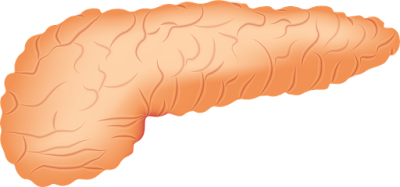Influenza or cold - how to recognize the symptoms and start treatment?
How to recognize the symptoms of influenza or cold and take treatment?
It is well known that it is better to prevent diseases than to deal with their unpleasant and troublesome symptoms later on. But what should we do if we have a cold or influenza?
A cold is a disease that can be contracted especially in the autumn. This ailment is often underestimated by many people who, instead of going on holiday and taking appropriate treatment, do not interrupt their work, exposing their co-workers to danger.
More than 200 viruses can cause the disease, and it is particularly easy to get ill if we freeze or get wet. It is therefore worth reading how to treat a cold, what are its causes and what manifests itself. It will not hurt to familiarize yourself with tried and tested home-based treatments and prophylaxis to prevent the disease.
You should also learn how to quickly distinguish a classical cold from influenza and what action to take then. Influenza is an acute and very contagious respiratory disease, which most often occurs in the form of epidemics in autumn and winter. It manifests itself in high fever, muscle, throat and headaches. It is worth studying how the disease is properly diagnosed, how to treat it in the most effective way and what to invest in - vaccination or maybe in appropriate prophylaxis.
Rhinitis, cough, sore throat - troublesome symptoms
Rhinitis is one of the most troublesome ailments that not only accompany diseases such as a cold or influenza, but it is also the nightmare of allergy sufferers, which makes everyday life much more difficult for them. This ailment is experienced by the highest number of patients during the autumn splash. It will not hurt to read what to do so that the runny nose does not hinder our lives. You can also learn a few specific curiosities in the style: what are the types of rhinitis or how it is formed, and what to do when the disease lasts longer and cannot be cured at home.
Throat pain and cough are also common symptoms of a cold. Throat is a very delicate organ, so it is worth taking care of its safety and good condition at an early stage. It will certainly not hurt to get to know the causes, symptoms and methods of treatment of the disease.
Unfortunately, colds are not only associated with symptoms resulting from upper respiratory tract inflammation. The patient also suffers from fever and joint pain. Therefore, for the duration of a cold or influenza, it is best to lie down in bed and not push your body. This will allow you to recover faster, and the fever and joint pain will be less annoying.
Prevention instead of treatment
It is well known that it is better to prevent diseases than to deal with their unpleasant and troublesome symptoms later on.
After all, appropriate health care habits through proper prophylaxis should be taught to children from an early age. Thanks to this, diseases such as flu or cold will not annoy them in the future.
Pneumonia, bronchitis, myocarditis, renal failure, post-infectious encephalitis, meningitis or exacerbation of asthma are some of the most common post-flu complications. How can you protect yourself from them? The most effective way to avoid influenza infection is with a vaccine.
Every year, between September and April, the risk of getting the flu increases. A sudden onset, high fever, muscle aches and headaches, a feeling of being unwell, abdominal pain and diarrhoea, cough and sore throat are its most common symptoms. Is influenza dangerous to our health and life? It is certain that we should not underestimate it in any way. - Influenza, due to the mass incidence, the variability of the viruses and the risk of complications, poses a serious threat to our health and even life.
The aim of influenza vaccination is not only to prevent people from becoming ill, but above all to avoid serious post-influenza complications, which pose a direct threat to our lives. Only prevention can protect against influenza and consequently against exclusion from work and family life for almost two weeks. If people are vaccinated when they become ill, the course of influenza is milder and the likelihood of complications is significantly lower.
To protect ourselves from influenza, in addition to vaccination, it is also important to remember to observe basic hygiene: washing hands thoroughly before every meal or contact with food. - During a flu epidemic or pandemic, we should avoid eating in public places, kissing, shaking hands when greeting and rubbing our eyes - especially after contact with contaminated surfaces such as handrails, doorknobs and handles. When ill, use disposable tissues, avoid coughing into a folded hand, and wash hands as often as possible to avoid spreading the disease.
Those at high risk of complications should especially benefit from vaccination. These include the elderly, people with chronic kidney, respiratory and cardiovascular disease, diabetics, people undergoing transplants and those infected with HIV. Among healthy people, pregnant women, children, medical personnel, as well as caregivers working in nurseries, kindergartens and social care homes should think about vaccination.
The best time to vaccinate is September and October. They can also be continued throughout the following months until the epidemic season, which usually occurs in the first three months of the year.



Comments
Post a Comment